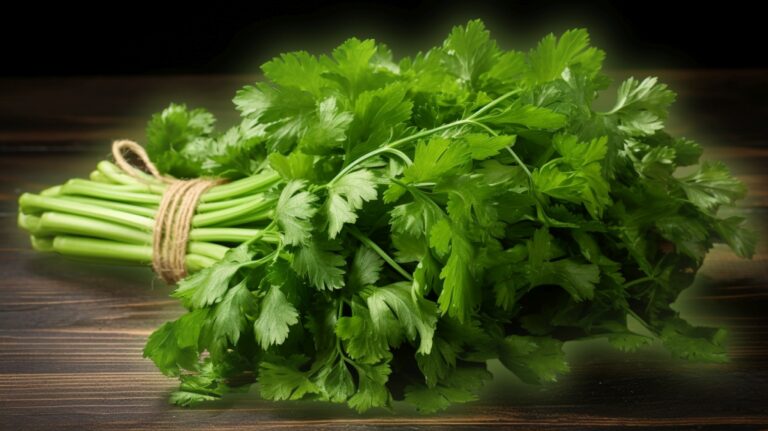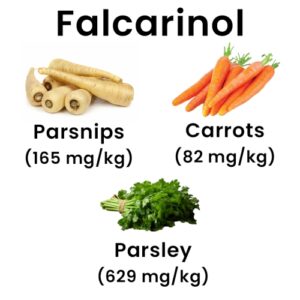The Secret About Cancer and Parsley

When it comes to herbs, parsley might be one of the most underestimated and underused herbs. It often plays a mere garnish role in many Western dishes. However, does this green herb actually have the potential to promote better health? In this article, we will uncover the numerous health benefits parsley has to offer and its surprising properties. And we will give a few ways to add it to your diet.
Health Benefits of Parsley

Parsley, often regarded as a simple garnish, is a powerhouse of nutrients that can greatly benefit your health. Parsley is well-known for its high vitamin C content, which is essential in reinforcing the immune system.
Vitamin C is known for its ability to enhance the body’s defence mechanisms, making it more resistant to infections and illnesses. Adding parsley to your diet can help your body prevent common colds and other diseases.
Another aspect of parsley is its rich vitamin A content, which promotes skin regeneration and repair, helping to reduce the appearance of blemishes and fine lines.
Parsley also contains many antioxidants that help combat free radicals, which can accelerate ageing and contribute to skin damage. A diet enriched with parsley can make your skin look more youthful and vibrant.
Parsley is also a natural source of vitamin K, a nutrient vital for bone health. Vitamin K is crucial in calcium absorption and bone mineralization, making it a critical component of a strong skeletal system. Regularly consuming parsley can help maintain healthy bones and reduce the risk of osteoporosis in the long run.

The Power of Parsley
Parsley contains two unique compounds: apigenin and falcarinol. A study from the Ohio State University reveals that apigenin interacts with approximately 160 proteins in the body. This remarkable trait allows it to exert a broad range of beneficial effects. Unlike pharmaceutical drugs that often target a single molecule, apigenin works on many parts of a cell. According to PubMed studies: “It triggers cancer cell death, stops cancer growth, and it stops their migration.”
What makes it even more effective is its incredibly high apigenin content. Parsley has ten times the apigenin in celery and kumquats, which are both considered high in apigenin. And surprisingly, dried parsley has over 20 times the apigenin in fresh parsley.

Falcarinol, another remarkable compound found in parsley, acts as a natural pesticide plants produce to protect themselves. This natural defense compound, can cause abnormal cells to behave normally.
Thanks to parsley’s rich falcarinol content, it can benefit all the body’s cells. Surprisingly, parsley surpasses other vegetables like carrots and parsnips in falcarinol content. Parsley contains four times more falcarinol than parsnips and seven times more than carrots.
Conclusion and Implementation
In conclusion, parsley is more than just a decorative herb on your plate; it’s a green wonder with a plethora of health benefits. From supporting the immune system to its remarkable properties for promoting cellular health, parsley is a must-add to your diet. Here are a few ways you can incorporate parsley into your meals:
- Juice it: Blend parsley with other vegetables for a refreshing, nutrient-packed juice.
- Eat it: Use parsley as a base in salads, in a salad dressing, or add it to your pesto.
- Sprinkle it: Sprinkle dried parsley flakes on your salads, cooked veggies, soups, and smoothies.
Parsley offers many health benefits. In our distance programs recipes we often use parsley. We also include many other healthy recipes that will help you to achieve a healthy lifestyle. Click the link to learn more about our home based cancer care program.